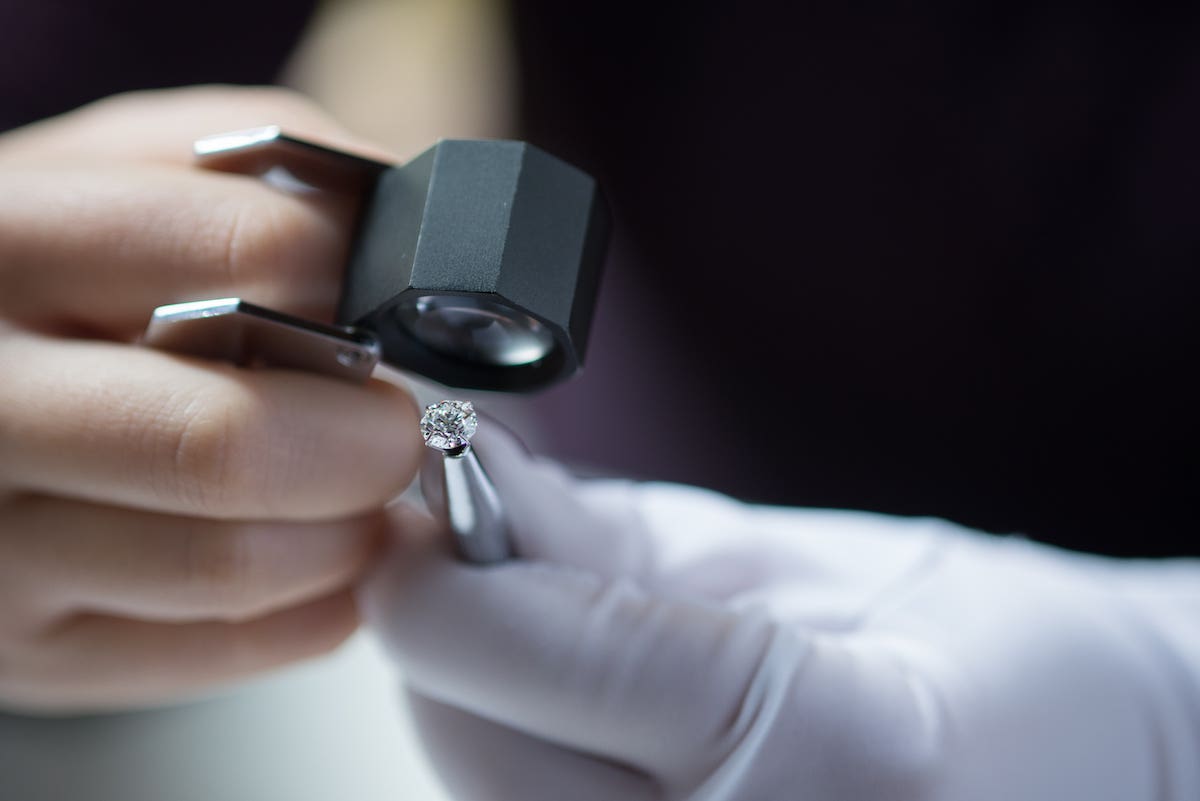What is a jewelry appraisal?
Most simply, a jewelry appraisal is an evaluation of what your jewelry is worth. You hire an appraiser who inspects your item, looking for key characteristics that may affect the price, such as metal type, gemstones, and other significant aspects of the item’s design. Once finished, the appraiser gives you an appraisal certificate. This certificate confirms the value of the item and acts as proof that you are its owner.
Jewelry appraisals for insurance need to list your jewelry’s measurable and verifiable characteristics, such as its:
Jewelry appraisals should also list your name and contact information as well as the date of the appraisal. All of this needs to be printed on the appraiser’s letterhead. Getting an appraisal allows you to get the protection you desire for an added premium.
Types of jewelry appraisals
There are several different types of jewelry appraisals:
-
Replacement cost appraisals are typically used to determine how much it would cost to replace a piece of jewelry at retail value. This value should be higher than a market value appraisal because of the different factors the appraisal considers, such as the cost of new metals and new stones and the potential labor cost when replacing or re-making the piece.
-
Market value appraisals determine the cash value of an item for sale, resale, or charitable donation. It reflects what you could reasonably sell it for if you could find a willing buyer and is usually somewhat below the retail value if the piece is for sale in a jewelry store. Because market value appraisals are based on current market conditions, they typically do not have a built-in added value to account for future material cost fluctuations.
-
Liquidation value appraisals determine the fair market value for estate, auction, divorce, loan collateral, or tax purposes. They’re typically the least used appraisals and often occur in more urgent circumstances. Moreover, this appraisal usually results in the lowest valuations because they’re intended to be a valid evaluation on a specific date, so they don't have a built-in increase in value. This valuation doesn’t reflect the true worth of your jewelry under normal conditions or circumstances.
Why do I need a jewelry appraisal for insurance?
Homeowners insurance generally only insure jewelry, watches included, up to a set amount ﹘ usually between $1,000 and $2,000. That’s fine if you have one nice piece, but it might not cover a collection of valuable watches or one heirloom necklace. To make sure your high-end jewelry is covered, you may need to increase your personal property coverage. Some insurers may offer a scheduled personal property endorsement to cover particularly valuable items.
But jewelry values can fluctuate, so your diamond ring may be worth more than what you originally paid. Moreover, your insurance company can’t just take your word on what your items are worth. Doing that would put the company at risk of being scammed by a nefarious person who insures their cheap jewelry for more than it's worth, only to “lose” the item and collect the insurance. A professional jewelry appraisal makes sure both parties know what’s being insured and helps you decide on appropriate coverage limits based on the item’s value.
Many insurance companies accept a jewelry appraisal performed within a certain period. So if you change insurers, an appraisal from last year might be good enough. Be sure to mention your valuables and your most recent appraisal when getting a quote.
How do I get a jewelry appraisal?
To get an appraisal, you need to go to a professional appraiser. Unfortunately, there are no licenses for appraisers, so you do need to do some research. You can start at jewelry stores or auction houses. Next, make sure that the appraiser is certified with one of the following organizations:
You’ll need to have the item you want appraised with you, and you will most likely have to hand it over to the appraiser for a few days, if not a couple of weeks.
How often do I need a jewelry appraisal?
An appraisal is a good idea any time you buy a nice piece of jewelry or an expensive watch. Getting items like these appraised lets you know if you need to update your homeowners policy, in particular your personal property coverage.
After the initial appraisal, you may want to have your valuable jewelry reappraised every few years (exact recommendations vary from every two to every five years). Jewelry values can fluctuate, and you want to make sure you have the right amount of coverage in case something happens to it. Reappraising your jewelry gives you a better idea of an item’s value so you can see if your coverage limits are still appropriate.
Does a receipt work as my jewelry appraisal?
Receipts sometimes work as a jewelry appraisal for insurance companies, but not always. Your insurance company wants to know the value of the piece because it needs to know what it costs to replace your jewelry if it’s lost or damaged. A recent receipt ﹘ say within the past 12 to 24 months ﹘ is often fine, especially if it includes details that demonstrate the item’s value.
However, keep in mind that fluctuating values may mean what you paid might not match the cost to replace your item. Even a recent receipt may not sufficiently cover the cost of replacement if you got a good deal.
How much does a jewelry appraisal cost?
The cost varies, but you can expect to pay anywhere from $50 to $150 per hour for a jewelry appraisal, but some appraisers charge a flat fee and can tell you their price upfront. More unique items, such as heirloom or custom-made pieces, may require a quote from your appraiser.

